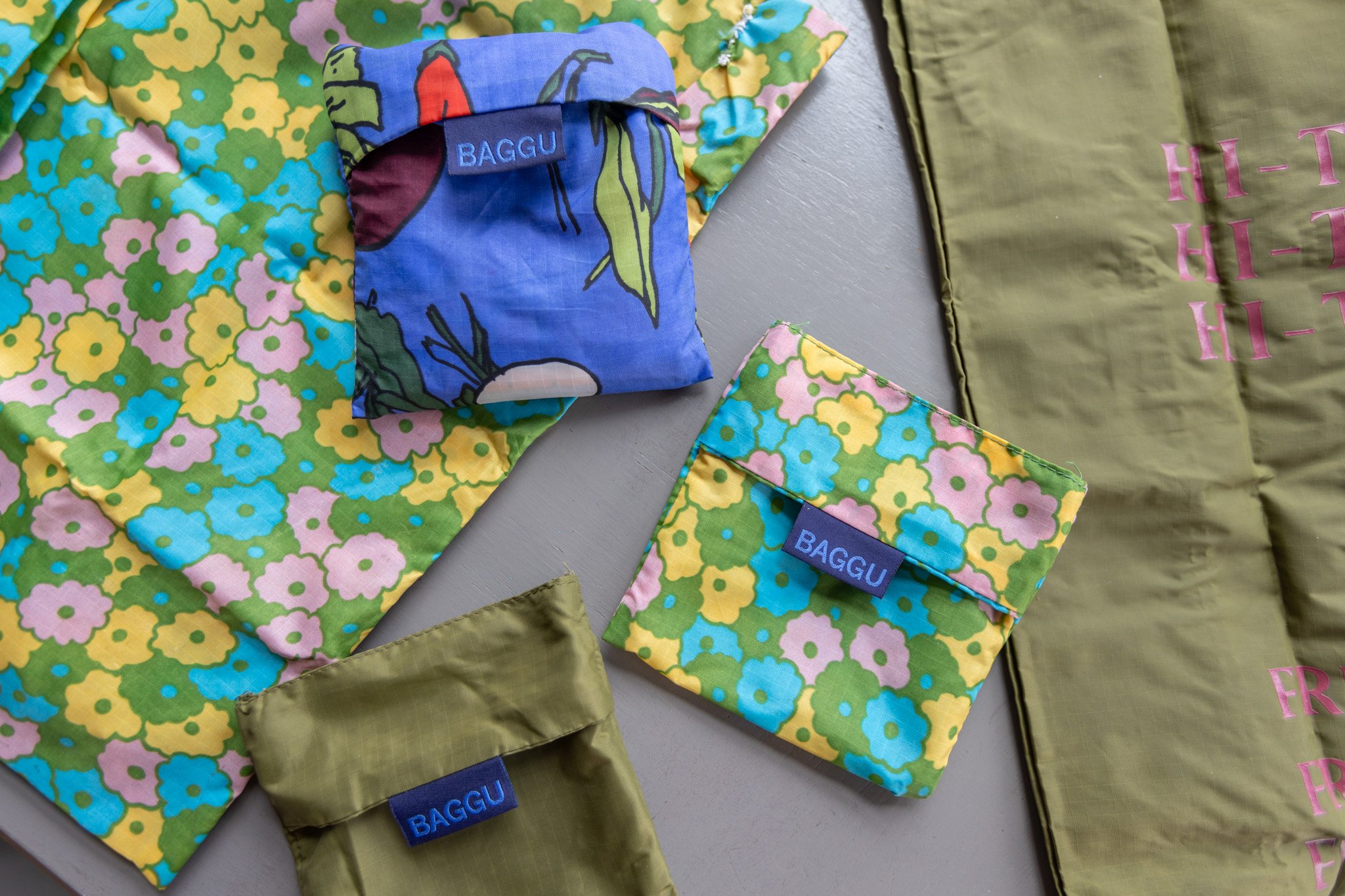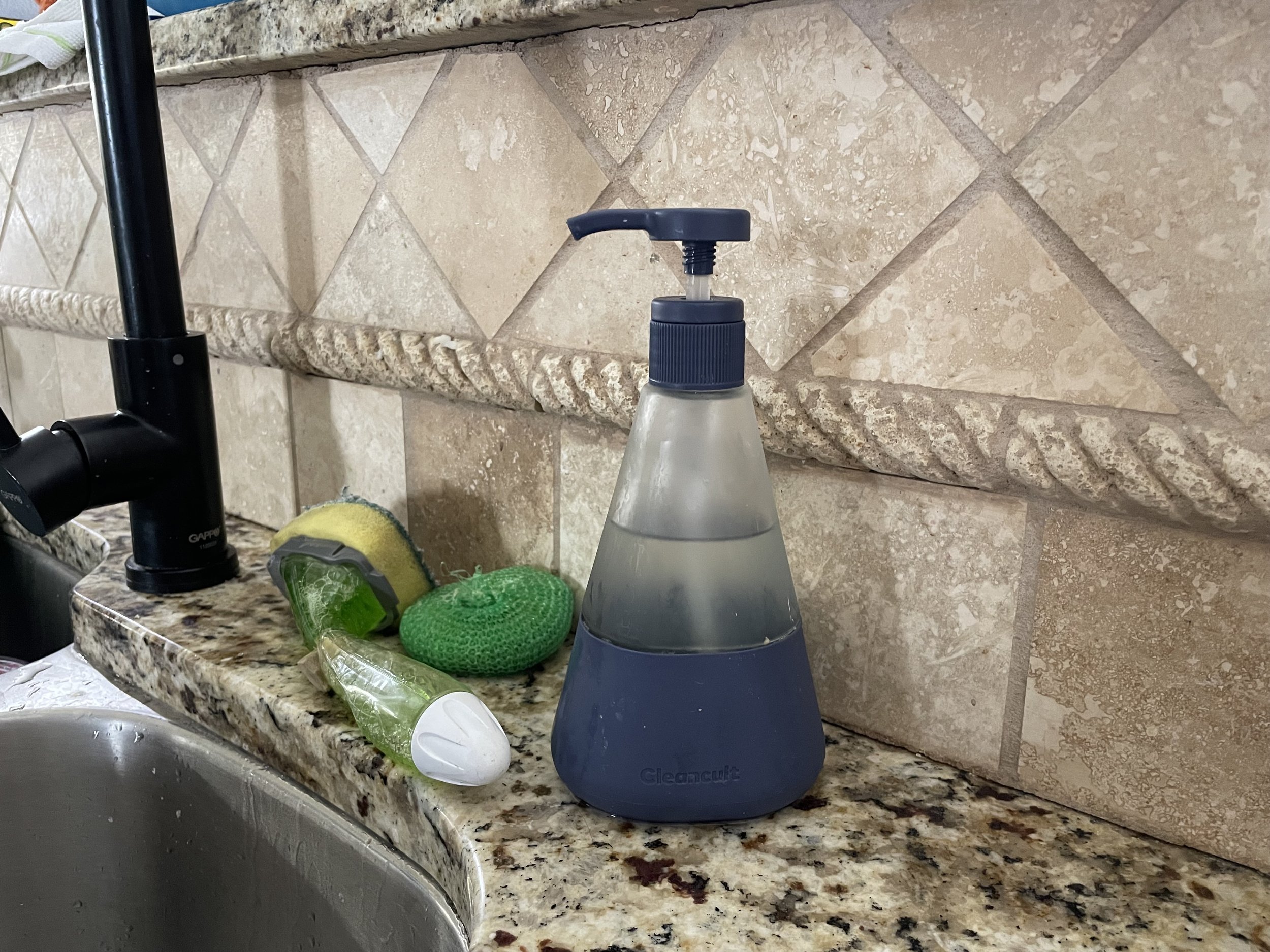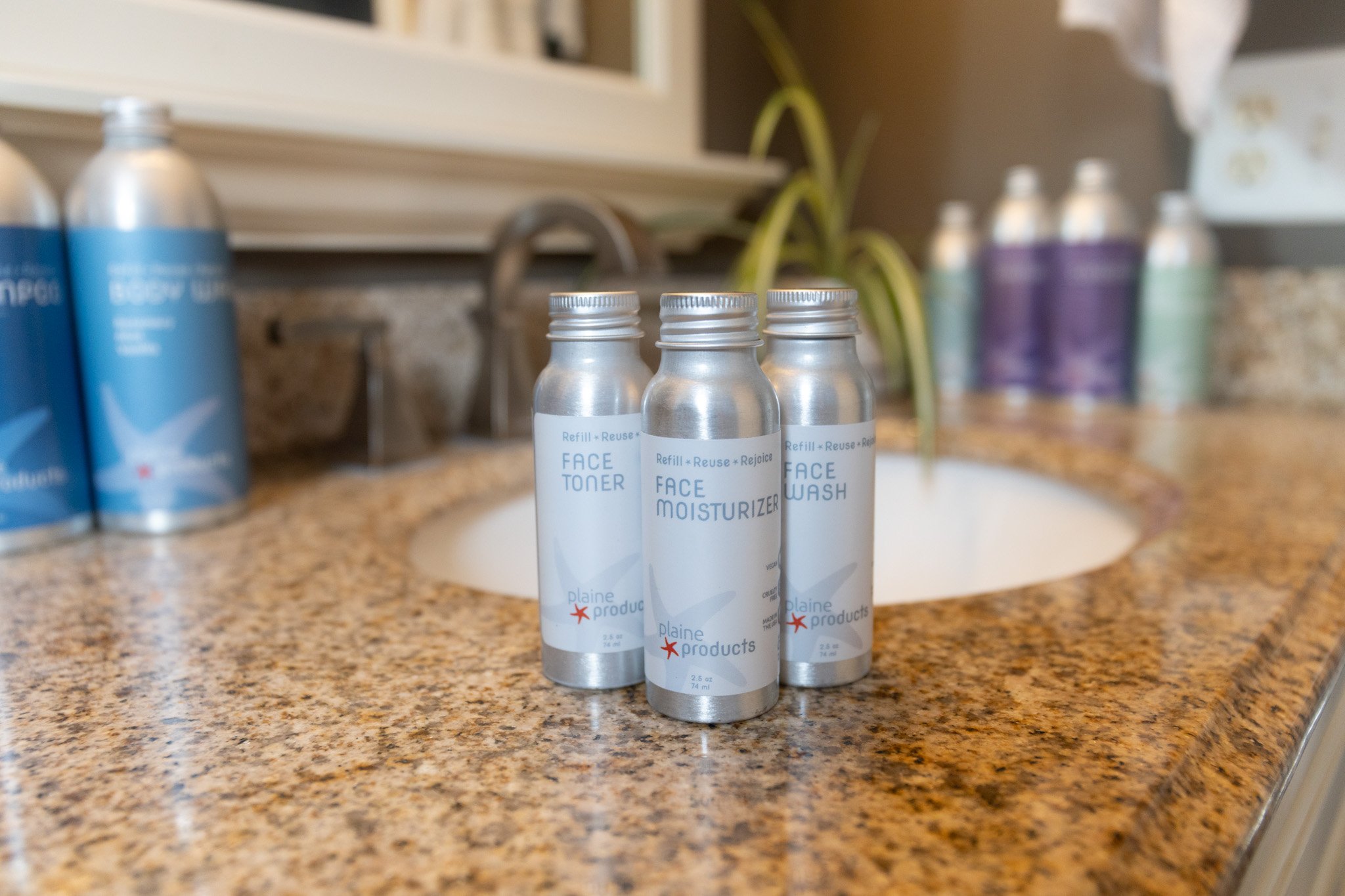Unregulated Words You Should Watch Out For to Live Zero Waste
Many words in the zero waste world are surprisingly unregulated. They can lead to greenwashing, wishcycling, and so much more harm. So, let’s unpack these words and watch out for them the next time we’re shopping for some low-waste products.
You can get my full FREE guide to spotting greenwashing here.
“Recyclable”
The definition from the Oxford Dictionary is literally “able to be recycled.” So, technically speaking everything is recyclable, but not everything is ACCEPTED for recycling. This is why you see the recycling symbol on plastic bags, red solo cups, plastic cutlery, and many more odds and ends. In theory, yes, you can recycle them but it’s probably not likely that your municipality accepts them. Check your recycling bin or call your recycling center for local rules on what you can and cannot recycle locally.
This is also different from Resin Identification Codes which are the numbers you see on plastics specifically which help recyclers know how to recycle each type of plastic. This code is not mandated in the US. This has also been shown to lead to consumers purchasing products with the recycling symbol on them more often than products that don’t use it in the hopes that the product is a little more eco-friendly. Thus, sending non-recyclable items to the recycling centers is wishcycling and can impact the entire recycling system.
“Sustainable”
The Oxford Dictionary definition is “able to be maintained at a certain rate or level.” What this means in terms of the environment is that we use resources at a rate or level that won’t lead to us destroying the environment or using up all the resources. But, this again, when used for products and marketing, is unregulated by the government. So, no one can get in legal trouble for labeling their products sustainable even if they aren’t (such as the McDonald’s fish filet).
“Green”
According to the Oxford Dictionary, being green is to “make less harmful or more sensitive to the environment.” That’s quite simple but is once again, unregulated. This means manufacturers can slap it on anything they make and it’s up to us to determine if it’s truly green or not and how. I’ve seen this on everything from sponges made partially of recycled materials to a special variety of Tide detergent. The quick way to determine if it’s truly green or not while at the supermarket is to look at the brand and see if they still make and/or carry their traditional products. I saw this “green” Tide right next to their regular orange bottles. This screams greenwashing and that they just made this line to make a quick sale from those of us who are eco-conscious.
“Plant-Based”
While this is mostly seen with food, I have also seen this term used on cleaners and other household items. Traditionally, it means food derived from plants and not animals. However, if you’re vegan, you know this does not always make it vegan. Wild, right? Well, that’s because this term is not regulated by the FDA. This means if you’re trying to cut out animal products from your diet for the sake of the planet (or any other reason), you have to be wary of this label for your foods.
You should also be wary of this label for your other household items, too. As I said, I’ve seen this used on cleaners, detergents, soaps, and more. This could mean the majority of the ingredients are naturally derived but doesn’t mean that they all are. Once again, since it’s unregulated, it’s up to the manufacturer to determine.
“Biodegradable” & “Compostable”
According to the Oxford Dictionary, biodegradable is “(of a substance or object) capable of being decomposed by bacteria or other living organisms.” So, literally anything is biodegradable, even plastic if you give it long enough. This is different from compostable, defined by the Oxford Dictionary, as being “(of organic matter, especially kitchen waste) able to be made into compost.”
I see both of these terms being thrown around willy-nilly. Thankfully, compostable is partially certified. But, I said partially. If someone wants to be certified compostable, they can be! But, that’s just if they want to be certified compostable, which they don’t have to be. I’ve seen this slapped on “bioplastics” (which we will get to in a minute) that are partially made from plants but partially made from traditional petroleum plastic, too. Yes, it CAN compost, but it’s not certified compostable. Frustrating, I know. Even one of my favorite eco-brands, Everly, does this. It’s not until you read the fine print that you learn just how you have to compost it, which is very specific. So, to avoid greenwashing with the term “compostable,” look for the “certified compostable” certification, not just the plain word that the brand can label themselves. The main certifier is the Biodegradable Products Institute and you can learn more about their regulations here.
Now, with biodegradable, this one is even worse. I’m going to just quote this from Eco Safe:
“Labeling a product as biodegradable doesn’t tell you anything about how a product breaks down or how long it takes. These products may or may not produce harmful chemicals or byproducts in the process of degrading. There is no way to know whether a product labeled as biodegradable has a long-term environmental impact. In other words, it’s an empty term that tells you nothing about the lifespan of the product.”
“Eco-friendly”
This is potentially my least favorite one on this list (well, besides biodegradable). Because the Oxford Dictionary definition is just this: “not harmful to the environment.” That’s it. Once again, being unregulated, it’s up to manufacturers to decide if it meets this ambiguous standard or not. They will probably say it does.
Now this one IS regulated by the Federal Trade Commission, but I think it’s pretty loose. Here are their requirements to be eco-friendly from Thread Logic:
Carbon offsets from production methods (which can be used as greenwashing)
The use of recyclable, compostable, or degradable materials that are non-toxic to the environment (which, as we said, can be greenwashing and misleading)
The use of renewable energy during manufacturing
A reduction of waste and toxicity (vague and ambiguous)
I think this is a step in the right direction, but these standards are not very high and are quite easy to loophole around in my opinion.
“Natural”
According to the Oxford Dictionary, the definition of natural is “existing in or caused by nature; not made or caused by humankind.” And technically everything DOES come from the earth in one form or another. My plastic water bottle came from the earth. Even on FOOD, this term is not regulated.
“Cruelty-free”
I’m sure some vegans are watching this, so be wary of this term. According to Color Science, “Cruelty-free means that the products are not currently tested on animals.” But, cruelty-free is NOT an official certification. The Leaping Bunny IS, but anyone can slap cruelty-free on their products even if the product is not eco-friendly or vegan. So, be aware of this one.
“Non-toxic”
This may be the vaguest one on the list! Non-toxic, according to Poison Control, is “a substance is one that is not expected to cause symptoms or be dangerous.” Hooray, it’s not expected to be dangerous but it could be! Even as vague as this is, non-toxic and toxic-free are neither regulated by the FDA. This means any company regardless if they make food, cleaners, toys, or what have you can slap this label on their packaging and call it a day. Because, look at the wording again, it just has to not be EXPECTED to be dangerous. And any company can claim that they didn’t think it would be dangerous if it ended up being that way. This one is sneaky and dirty and does not make a product eco-friendly.
This all leads to greenwashing
At the end of the day, watch out for these terms. While some truly eco brands may use them, other wasteful brands do not and they use it to greenwash us. When in doubt, evaluate the brand as a whole, look for 3rd party certifications, and look for proof that they uphold these claims and don’t just slap these words on their products.
I’m sure there are more terms where this came from so shoot me more words you’d like me to research for a follow-up post to this one. Once again, check out my videos on greenwashing here, and don’t forget to download my free guide to spotting greenwashing!
Always question brands, particularly those who are not open and honest and always look for available 3rd-party certifications to back up their claims. And stay tuned for another post deep diving into said 3rd-party certifications so we can know what they mean too.
Thanks for reading along, I hope you learned something! As always, remember that your small actions make a big difference in the long run :)
Emma











